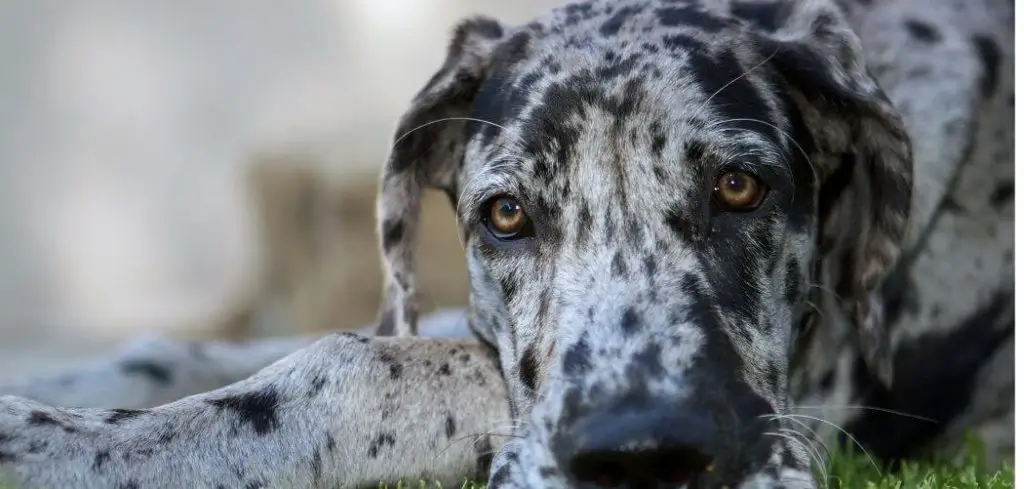When an old dog starts eating less than usual, it can be a subtle but important sign of health changes.
Monitoring and addressing this early is essential to prevent weight loss, malnutrition, and other complications.
We outline the common reasons why an old dog may not be eating as much, what you can do, and when to seek veterinary help.
Old Dog Not Eating as Much — Why It Happens
An old dog not eating as much is usually a normal part of aging, but it can also signal health issues. As dogs age, their metabolism slows, activity levels drop, and appetite naturally decreases.
However, reduced food intake can also be caused by dental problems (pain when chewing), gastrointestinal issues, kidney or liver disease, arthritis pain affecting mobility at mealtime, or even medication side effects. Stress, anxiety, or changes in routine may also play a role.
If your senior dog is eating less but otherwise seems fine, it may simply need smaller, more frequent meals or softer food.
But if the reduced appetite is sudden, accompanied by weight loss, vomiting, diarrhea, or lethargy, it’s important to see a vet to rule out serious conditions.

Old Dog Not Eating as Much: Common Causes
Dental Disease
Pain from tooth decay, gum disease, or oral infections can reduce eating.
Dogs may chew more slowly or drop food but continue to eat smaller amounts. Look for bad breath, drooling, or reluctance to chew. Veterinary dental care can restore comfort and appetite.
Read more: Old Dog Not Eating as Much but Acting Normal (Here’s Why)
Digestive Upset
Mild gastrointestinal issues, such as nausea, bloating, or mild diarrhea, may reduce food intake.
Dogs may avoid meals temporarily while still drinking water. Feeding bland, soft foods can help maintain nutrition while the digestive system recovers.
Organ Dysfunction
Kidney, liver, or pancreatic disease can subtly reduce appetite.
Dogs may eat smaller portions due to nausea or discomfort, often accompanied by weight loss, lethargy, or vomiting. Early veterinary evaluation helps detect and manage these conditions.
Arthritis or Mobility Issues
Pain from arthritis can make bending or reaching food difficult, causing reduced intake.
Dogs may favor soft foods or raised feeders. Veterinary guidance on pain management and feeding adjustments can encourage normal eating.
Age-Related Metabolic Changes
Older dogs may naturally eat less due to slower metabolism or reduced activity.
While some reduction is normal, a significant or sudden decrease in appetite warrants monitoring. Adjusting food type, portion size, and feeding schedule may help maintain nutrition.
Stress or Environmental Changes
Changes in routine, environment, or household dynamics can affect appetite.
Dogs may eat less during travel, boarding, or household disruptions. Maintaining a consistent feeding schedule and a calm environment helps reduce stress-related appetite loss.
What to Do If Your Old Dog Is Not Eating as Much
Offer smaller, more frequent meals to encourage eating.
Provide soft, palatable foods or slightly warmed meals to increase aroma and appeal.
Monitor water intake, stool consistency, and energy levels to ensure overall health.
Document intake patterns and any accompanying symptoms to share with your veterinarian for timely evaluation.
When to Call or Visit Your Vet
Seek veterinary attention if your dog:
Eats significantly less than usual for several days
Shows weight loss, vomiting, diarrhea, or lethargy
Appears weak, dehydrated, or in pain
Exhibits dental discomfort, drooling, or pawing at the mouth
Prompt veterinary evaluation identifies underlying issues such as dental disease, organ dysfunction, digestive problems, or stress-related causes, allowing for early treatment and prevention of complications.
Read more: Old Dog Not Eating (Causes and what to do)
Key Takeaway
When an old dog is not eating as much, dental pain, digestive discomfort, organ dysfunction, or stress may be contributing factors.
Home care includes offering smaller, palatable meals, monitoring water intake, and observing behavior.
Persistent reduction in appetite requires veterinary evaluation to maintain nutrition, prevent weight loss, and support overall health and comfort for your senior dog.
